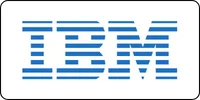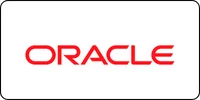RHCE-Red Hat Certified Engineer Training







RHCE-Red Hat Certified Engineer Training Course
Looking to take your Linux skills to the next level? You’ve found one of the best RHCE training in Vadodara. If you already have a solid foundation in Linux and are ready to automate, manage, and optimize enterprise-level systems, this course is your gateway to becoming a Red Hat Certified Engineer.
The RHCE certification course in Vadodara builds upon the essentials taught in the RHCSA (Red Hat Certified System Administrator) certification. It dives deeper into advanced topics such as system automation using Ansible, network service configuration, security hardening, and troubleshooting complex issues in dynamic environments. The focus is on enabling learners to manage real-world, large-scale Linux deployments efficiently.
This course places a strong emphasis on automation—especially using Ansible—to replace repetitive manual tasks with streamlined, consistent workflows. From managing firewalls and security policies to configuring essential network services, you’ll gain hands-on experience in real-world lab environments that simulate actual enterprise challenges.
Throughout the training, you’ll get practical exposure to tools and techniques required to handle production-grade RHEL (Red Hat Enterprise Linux) environments. By enrolling in our RHCE coaching classes in Vadodara, you’ll be equipped with the skills and confidence needed to clear the RHCE certification exam and take on advanced roles such as Senior System Administrator, DevOps Engineer, or IT Infrastructure Specialist.
The RHCE certification course in Vadodara is more than just exam preparation—it’s a professional development journey. Whether you’re aiming to deepen your Linux system administration skills or step into automation and DevOps, this training offers both the knowledge and practical experience needed to stand out in today’s IT industry.
What will I learn?
- Configure and manage network services, such as DNS, DHCP, and NFS, on Red Hat Enterprise Linux systems.
- Implement advanced storage solutions, including logical volume management (LVM) and network file systems (NFS) configurations.
- Secure Red Hat Enterprise Linux systems by configuring firewalls, SELinux policies, and user access controls.
- Perform system performance tuning and optimization tasks to enhance system reliability and efficiency.
- Writing Ansible playbooks to automate tasks
- Deploying and managing web servers (Apache, Nginx).
- Configuring FTP, NFS, SMB, and SMTP services.
- Configuring and managing firewalls using firewalld.
- Configuring IPv4 and IPv6 networking.
- Creating and managing LVM, RAID, and encrypted partitions.
- Using tools to monitor system performance and resource usage.
- Diagnosing and resolving boot issues.
- Installing and managing database servers like MariaDB.
- Analyzing system logs and core dumps for problem resolution.
- Implementing disk quotas and ACLs for file system security.
Requirements
- Must obtain the RHCSA (Red Hat Certified System Administrator) certification
Red Hat Certified Engineer Training Course Content
- System Configuration and Management:
- Configuring static routes, packet filtering, and network address translation
- Setting kernel runtime parameters
- Configuring system to authenticate using Kerberos
- Configuring a system as an iSCSI initiator that persistently mounts an iSCSI target
- Producing and delivering reports on system utilization (processor, memory, disk, and network)
- Using shell scripting to automate system maintenance tasks
- Network Services:
- Installing and configuring basic networking services, including HTTP/HTTPS, FTP, NFS, SMB, SMTP, SSH, NTP
- Configuring a system to authenticate against an LDAP directory service
- Storage Management:
- Creating and configuring file systems, including encryption, at runtime
- Configuring systems to mount file systems at boot by universally unique ID (UUID) or label
- Security:
- Configuring firewall settings using firewall-config, firewall-cmd, or iptables
- Implementing software-defined networking with Open vSwitch
- Configuring system to authenticate using Kerberos
- Configuring a system as either an iSCSI target or initiator that persistently mounts an iSCSI target
- Producing and delivering reports on system utilization (processor, memory, disk, and network)
- Using shell scripting to automate system maintenance tasks
- Troubleshooting:
- Troubleshooting file systems
- Recovering corrupted file systems
- Troubleshooting boot issues
- Analyzing system logs for troubleshooting purposes
- Automation:
- Schedule tasks using cron and at
- Configure systems to boot into a specific runlevel automatically
- Implement specific systemd targets and modify the systemd configuration of services
- Containerization:
- Installing and configuring Docker
- Creating and managing Docker containers
- Configuring and managing Docker images
- Docker security, networking, and storage
- Orchestration:
- Introduction to Kubernetes and OpenShift
- Deploying and managing applications on Kubernetes/OpenShift clusters
- Scaling applications on Kubernetes/OpenShift clusters
- Managing Kubernetes/OpenShift resources
- Network Configuration:
- Configure network interfaces with static and dynamic IP addresses.
- Set up and troubleshoot network bonding for fault tolerance and load balancing.
- Configure VLANs and implement network segmentation.
- Implement and troubleshoot IPv4 and IPv6 routing.
- Storage Management:
- Create and manage various types of file systems, such as ext4, XFS, and Btrfs.
- Configure and manage software RAID devices.
- Set up and configure Logical Volume Management (LVM) for flexible storage allocation.
- Configure and manage network-attached storage (NAS) and storage area networks (SANs).
- Security:
- Configure firewall rules using iptables or firewalld.
- Set up and configure SELinux for enforcing security policies.
- Implement secure remote access using SSH with key-based authentication.
- Configure file and directory permissions, including Access Control Lists (ACLs).
- System Services:
- Install, configure, and manage various system services such as HTTP, FTP, DNS, DHCP, NFS, and Samba.
- Configure and manage time synchronization using NTP.
- Implement centralized authentication and authorization using LDAP or Kerberos.
- Troubleshooting:
- Troubleshoot boot issues and rescue systems using GRUB.
- Analyze system logs using tools like journalctl, syslog, and dmesg.
- Identify and resolve common network connectivity issues.
- Troubleshoot and resolve storage-related problems such as disk failures or file system corruption.
- Automation:
- Write shell scripts to automate system administration tasks.
- Schedule tasks using cron or systemd timers.
- Configure systems to boot into specific runlevels or systemd targets.
- Containerization and Orchestration:
- Install and configure Docker for containerization.
- Create Docker containers, manage images, and work with Docker volumes.
- Deploy and manage applications on Kubernetes/OpenShift clusters.
Get in touch
400+ Global Employment Partners







































Why Choose RHCE (Red Hat Certified Engineer) Certification Course from Bright Computer Education?
RHCE courses are designed to deliver an advanced, hands-on, and certification-driven learning experience for IT professionals aiming to excel in Linux system administration and automation. Whether you’re planning to Learn RHCE in Vadodara, beginning your journey with RHCE for beginners in Vadodara, or enhancing your skills through Advanced RHCE training in Vadodara, these programs are ideal for learners at every level. The curriculum focuses on advanced topics such as shell scripting, system automation with Ansible, security configurations, network services, and troubleshooting. With expert-led instruction, lab-based exercises, and real-world scenarios, students are well-prepared to pass the RHCE certification and take on complex system administration tasks in enterprise environments.

Designed Curriculum
Our curriculum covers everything from basic to advanced topics. Topics include variables, data types, control structures, functions, OOP, STL, and more.

Hands-on Learning
Dive into practical exercises and coding projects that reinforce learning and help you build real-world applications.

Experienced Instructors
Learn from industry experts with years of experience in C programming and software development.
Flexible Learning
Choose from flexible scheduling options, including self-paced learning or live virtual classes to fit your busy lifestyle.
Career Development
Gain valuable skills sought after by employers in various industries, from software development to embedded systems and beyond.
Interactive Learning
Engage with fellow learners and instructors through live Q&A sessions, discussion forums, and collaborative coding exercises.
Diverse Career Opportunities in RHCE: Exploring Paths in India's Technology Sector
The RHCE (Red Hat Certified Engineer) certification is an advanced-level credential that builds on RHCSA and focuses on automating Linux system administration tasks using Ansible and other advanced tools. It equips professionals with skills required to manage complex systems and ensure enterprise-level performance, security, and reliability.
In India, RHCE-certified professionals earn between ₹6–15 lakhs per annum, depending on experience and industry. The certification is in high demand across data centers, cloud service providers, government sectors, telecom, and IT infrastructure companies.
Globally, especially in the U.S., UK, Canada, Australia, and the Middle East, RHCE-certified engineers can earn between $90,000 to $130,000 per year. The RHCE credential opens up advanced career roles such as Linux System Engineer, DevOps Engineer, Infrastructure Architect, and Senior System Administrator.
Frequently Asked Questions
Recently View Courses
Course Details Curriculum Placement FAQ’s AWS Certified Solution Architect Associate Course The AWS Certified Solutions...
Read MoreCourse Details Curriculum Placement FAQ’s AWS Certified Cloud Practitioner Course The AWS Certified Cloud Practitioner training...
Read MoreCourse Details Curriculum Placement FAQ’s RHCE-Red Hat Certified Engineer Training Course Looking to take...
Read More
